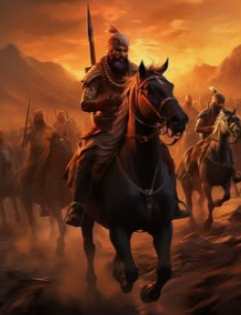Imam Ibn Kathir mentions in his book Al-Bidaya wa Niha, Al-Waqid quotes a narration. Al-Waqidi said about the events that took place in the eighth year of the Hijri: In the eighth year of the Hijri, the Messenger of Allah (peace and blessings of Allah be upon him) sent Amr ibn al-As (may Allah be pleased with him) Jalal’s two sons Sent to Zayfa and Amr in the region AJJ. Through them, the Jizya tax was collected from the Mazu’i and Bedouins of the region. In the same year, the Prophet (peace and blessings of Allaah be upon him) married Fateha ibn Tahaf. But he sought refuge in Allah from being separated from the Messenger of Allah (peace and blessings of Allah be upon him). So the Prophet (peace and blessings of Allah be upon him) divorced her.
It is worth noting here that the Prophet (peace and blessings of Allaah be upon him) collected taxes from followers of other religions, but even though there is a provision for collecting taxes, it is not permissible to collect them from the People of the Book. However, some scholars believe that the Jizya tax can only be collected from the People of the Book or Christians, and not from people of other religions.
The Jizya tax is a type of tax that allows a non-Muslim to reside in a Muslim state. However, the specific amount of this tax is not mentioned anywhere. We have already learned that the Romans told the Muslims that you have come to fight for money, so we will pay whatever it takes, but now we will not fight you. This is undoubtedly very insulting to Muslims. So the Muslims withdrew their offer of tax collection and agreed to war.
This time we will discuss the ninth year of the Hijri. The most important battle of this year was the Battle of Tabuk. In this battle, the Muslims of that time set out to fight against the Roman soldiers with 30,000 soldiers. This was incredible at the time because the Romans were skilled warriors and the Muslims had just formed a new Islamic state.
On the other hand, the Roman emperor knew that the Prophet Muhammad (peace be upon him) was a true prophet, but he did not accept Islam out of greed for power. The Muslims were at war with the Romans for almost 800 years.
Let us first discuss the context of the Battle of Tabuk.
O you who have believed, indeed the polytheists are unclean, so let them not approach al-Masjid al-Haram after this, their [final] year. And if you fear privation, Allah will enrich you from His bounty if He wills. Indeed, Allah is Knowing and Wise.
(Quran 9:28)
The Quraysh of Mecca had long been earning a huge amount of money from Hajj and Umrah, but after the establishment of the Islamic state, the Prophet Muhammad declared that no Muslim would be allowed to enter Mecca, which resulted in a huge loss to their Hajj and Umrah business, and they could not accept it.
Jihad is the Sharia-compliant method of spreading Islam. The Battle of Tabuk took place for this very reason. Because after Arabia, the Roman Empire was the biggest obstacle to the spread of Islam.
O you who have believed, fight those adjacent to you of the disbelievers and let them find in you harshness. And know that Allah is with the righteous.
(Quran 9:123)
The word “infidels” here refers to the Romans. The Romans had no intention of attacking the Muslims, but Allah Almighty has ordered them to attack the Romans. This was a direct command from Allah regarding Jihad. After receiving this order, the Prophet (peace be upon him) raised a large army against the Romans and he did not announce the news of all the previous battles in advance, but he started announcing the news of the Battle of Tabuk in advance.
When the Prophet (peace be upon him) went to the Battle of Tabuk, he was appointed Muhammad ibn Masud as the governor of Medina. And Ali (may Allah be pleased with him) was entrusted with the care of his own family.

